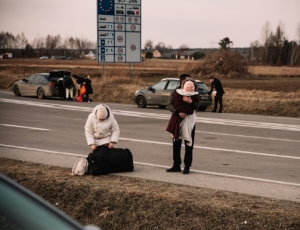About the topic
The proposal of the theme group was collectively drafted during the preparatory meeting in the fall of 1998. Its final version, edited by Robert J. Mokken and myself, stated that we intended to work on three separate projects.
Formalisation of theories of organisation ecology (Michael Hannan, Gabor Peli, László Pólos in collaboration with Glenn Carroll);
Transformation in Corporate Networks, 1976-1996 (Malcolm Alexander, William K. Carroll, Meindert Fennema, Rob Mokken in collaboration with Emil Petkov);
Ethnic organisations and mobilisation (Meindert Fennema, Jean Tillie and Suzan Olzak). Of the collaborative efforts as foreseen in the original proposal under the heading of interface, very little has come to a head. The different cliques, clubs and clans within the research group were so focused on the own projects that the potential for group discussions was not realised, except for the fruitful discussions during the seminars on ethnic conflict that were convened by Susan Olzak and the final NIAS conference on “Corporate Governance in a Globalizing World”. The projected edited book on “Organizational Transformation and Globalization” had to be canceled. Two out of the three projected monographs that involved more than one scholar have not been taken as far as it was hoped for. The monograph on “Transformation in Corporate Networks” is well on its way but it is far from finished. The monograph on “Multicultural Democracy in Amsterdam” encountered the same fate. However, the monograph on “Formalization of Theories of Organizational Ecology” is nearly finished. This disappointing result is partly due to some unforeseen bad luck in the data collection process before the NIAS year started (in the case of the corporate network group the data on the Netherlands and on Australia were not available at the start of our NIAS year). It is partly due to the over optimism about the development of a theoretical framework (as was the case in the project on Multicultural Democracy). Such over-optimism also has had a negative impact on the inclination to engage in interfaces with adjacent research units. Too much focus on output may well hamper the NIAS mission to foster lateral contacts between researchers that come from different disciplines or work within different theoretical perspectives.











